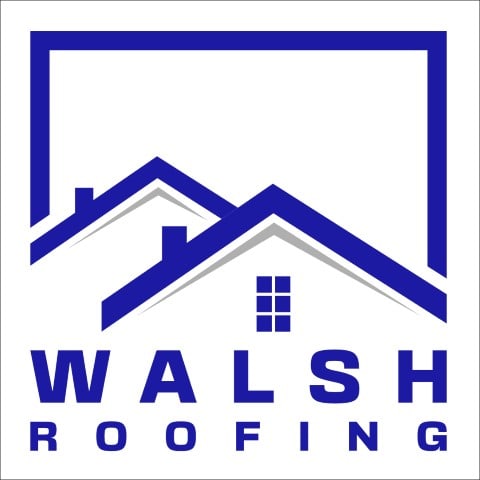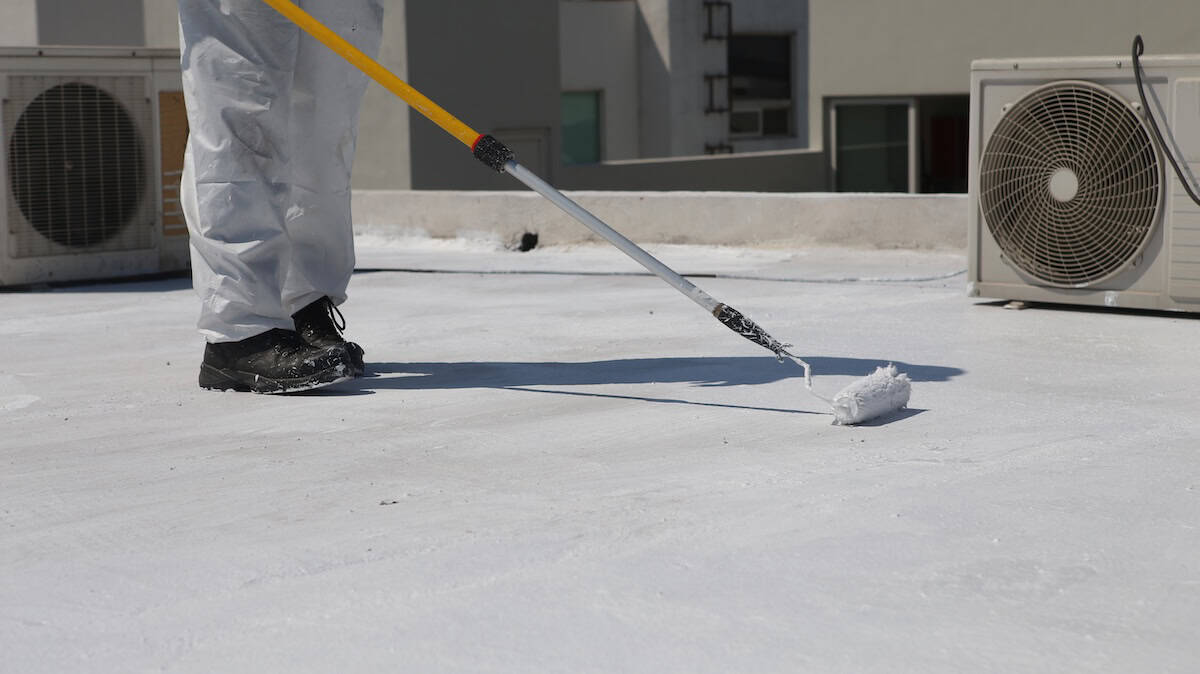When it comes to protecting your commercial property, using a high-quality waterproof roof sealant is one of the best investments you can make. Roof leaks aren’t just an inconvenience; they can lead to costly repairs, structural damage, and even jeopardize the safety of the building’s occupants. A dependable sealant acts as a barrier, safeguarding your roof against water, extreme temperatures, and harmful UV rays.
Here’s what you can expect from this comprehensive guide on waterproof roof sealants for commercial use:
- Understand the top features to look for in a reliable roof sealant.
- Learn about the best options on the market tailored to different roofing materials, including metal roofs.
- Get tips to ensure durability and long-lasting protection for your property.
Why a Waterproof Roof Sealant is Essential
Maintaining a commercial roof is no small task. Weather, wear, and time can expose vulnerabilities that lead to costly leaks and damage. Here’s why a waterproof roof sealant stands out as a critical tool for building protection.
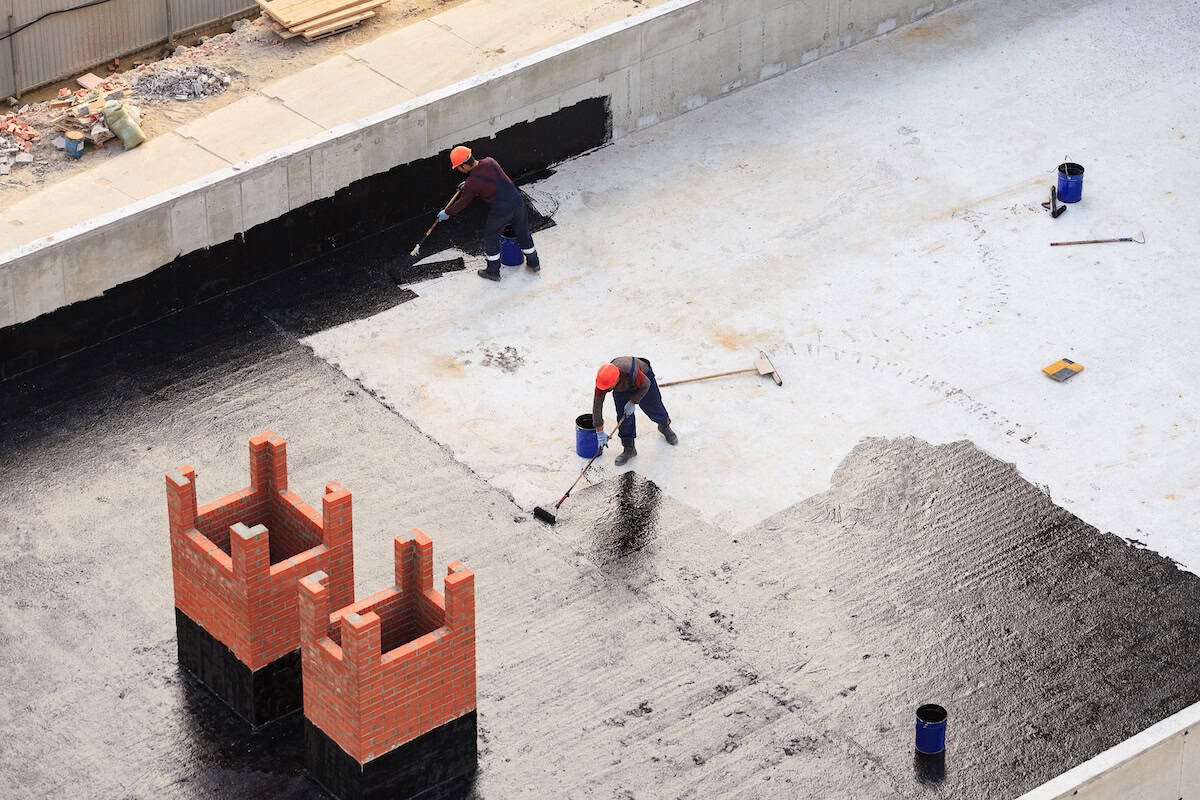
Protect Against Water Damage
Water intrusion can cause immediate and long-term issues—from mildew and internal staining to severe structural damage. Sealants create an impermeable layer that prevents water from seeping through even the smallest cracks.
Boost Roof Durability
Commercial roofs endure constant exposure to the elements. A good sealant not only stops leaks but also fortifies your roof against wear and tear, extending its lifespan.
Withstand Harsh Temperatures and UV Rays
Extreme heat, freezing temperatures, and UV exposure can degrade roofing materials over time. Sealants help form a shield that resists these forces, maintaining the roof’s integrity year-round.
Types of Waterproof Roof Sealants
Choosing the right waterproof roof sealant starts with knowing your options. Not all roofs are the same, and neither are the sealants available. The right choice depends on your roof type, environmental conditions, and specific protection needs.
Silicone Roof Coatings
What it is: Silicone sealants are some of the most popular options on the market, thanks to their excellent UV resistance and ability to withstand ponding water over time.
Benefits for commercial roofs:
- UV Resistant: Protects the roof from sun damage, preserving its integrity.
- Ease of Maintenance: Dirt and debris don’t stick easily to silicone coatings, reducing the need for frequent cleaning.
- Durability in Wet Conditions: Silicone is particularly suited for flat and low-slope roofs where water pooling can occur.
Ideal for: Flat roofs, low-slope roofs, or areas with heavy rainfall.
Acrylic Roof Coatings
What it is: Acrylic sealants are water-based and known for their affordability and wide application. These coatings are highly reflective, promoting energy efficiency for commercial properties.
Benefits for commercial roofs:
- Temperature Regulation: Reflects UV rays, keeping the building cooler in warmer climates.
- Cost-Effective: A budget-friendly yet reliable protection solution.
- Flexible Application: Works well across various roof types, including metal roofs and asphalt shingles.
Ideal for: Commercial buildings in hot climates seeking energy-efficient roofing solutions.
Polyurethane Sealants
What it is: Polyurethane sealants are engineering-grade quality products praised for their exceptional flexibility and durability. These coatings provide a robust seal for areas prone to movement or vibration.
Benefits for commercial roofs:
- Strong Adhesion: Bonds well to many surfaces, including concrete and metal roofs.
- Reliability in Movement: Its flexibility makes it perfect for roofs with frequent expansions and contractions due to temperature shifts.
- Waterproof Barrier: Offers excellent water resistance, ensuring no leaks.
Ideal for: Roofs subject to thermal contractions or areas with significant structural movement.
Bitumen-Based Sealants
What it is: Bitumen-based sealants are commonly used for larger commercial roofs, particularly built-up roofing systems. These coatings work well as a reliable protective layer.
Benefits for commercial roofs:
- Waterproof Barrier: Provides heavy-duty leak prevention, even under prolonged exposure to water.
- Versatility: Available as liquid-applied solutions for easy installation.
- Budget-Friendly: A cost-efficient choice for large-scale projects.
Ideal for: Built-up roofing systems and commercial properties needing heavy-duty waterproofing.
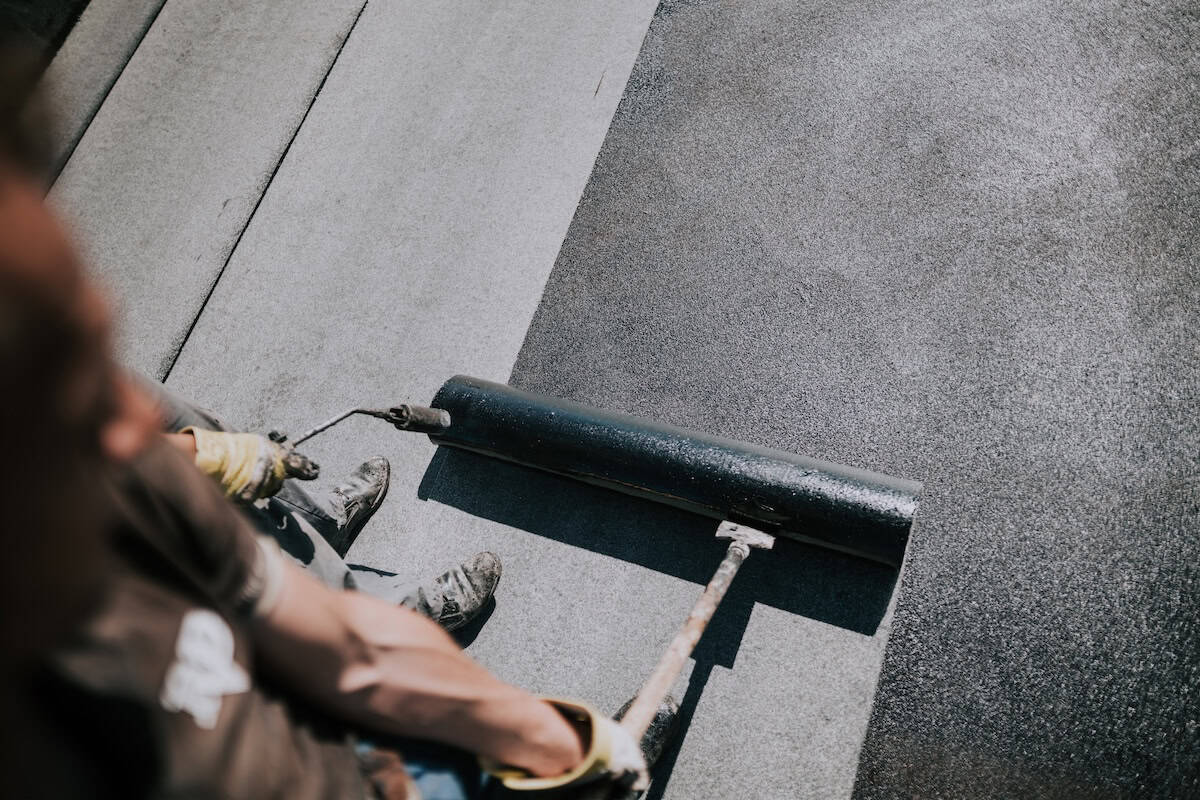
Top Features to Look For in a Reliable Waterproof Sealant
To ensure you pick the most effective sealant for your commercial roof, it’s essential to know what features to prioritize. Below is a breakdown of the top five characteristics every property manager should look for when evaluating waterproof roof sealants.
💧 Waterproofing Capabilities
The main job of a sealant is to prevent water from penetrating your roof. Look for coatings explicitly designed for water resistance, particularly those that also protect against ponding water.
☀️ UV Resistance
Sun exposure can quickly age your roof. UV-resistant coatings help to deter sunlight damage, keeping your roof looking newer and functioning better for longer periods.
💪 Durability
A reliable sealant should stand tough against weather fluctuations and wear. This includes resistance to cracking, peeling, and degradation under both hot and freezing temperatures.
⭐️ Adhesion Versatility
Different roofing materials demand different adhesive strengths. Choose a product that binds well to your specific material, whether you have metal roofs, asphalt, or EPDM roofing.
✅ Ease of Application
Some sealants require professional skills for application, while others are easy to apply with basic tools. Know the expertise required to ensure a long-lasting finish.
How to Apply Waterproof Roof Sealant
For those new to the application process, don’t worry. We’ve broken it down into easy and practical steps that will leave your commercial roof leak-free and well-protected.
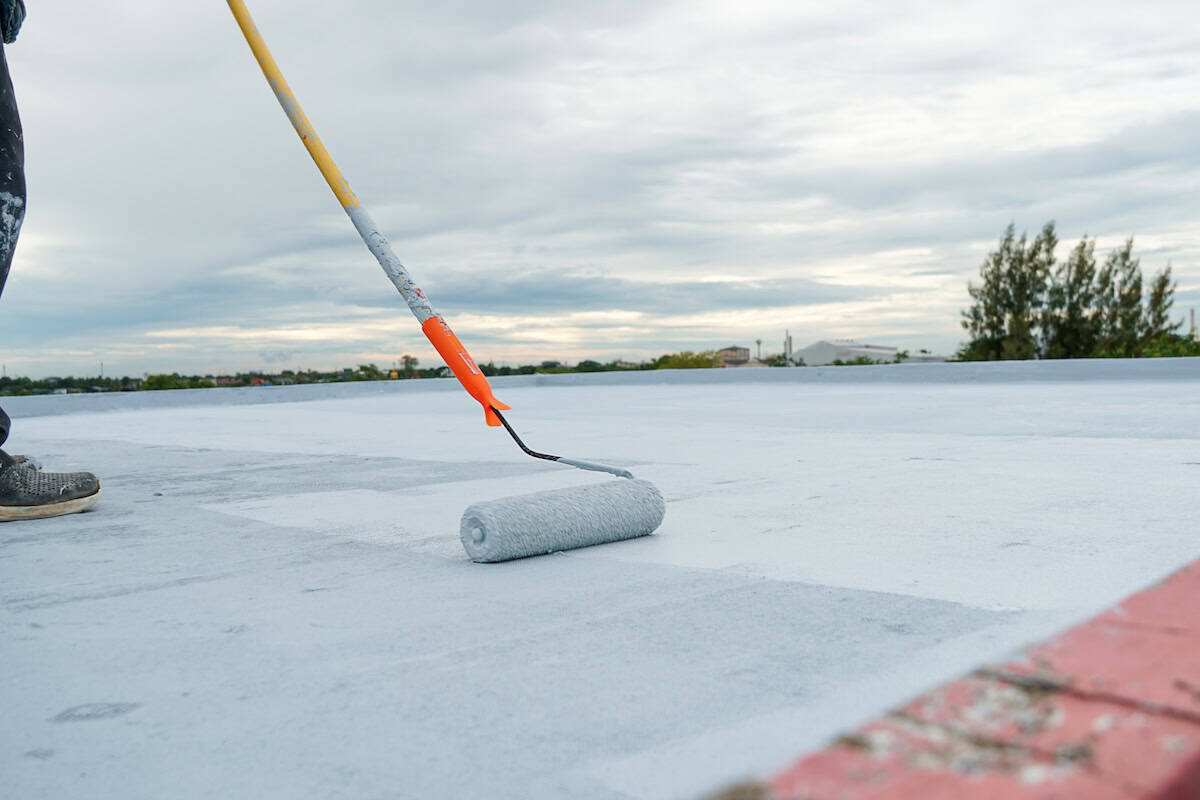
Preparation is Key
- Inspect the Roof Surface: Examine for existing damage, such as cracks or holes, and clean the surface to remove debris, mold, or old sealant.
- Repair Any Damage: Use a filler or patching material to address visible gaps or damage before applying the waterproof roof sealant. This ensures proper adhesion.
- Choose the Right Sealant: Match the sealant type to your roof’s material and conditions (e.g., silicone for UV resistance, bitumen for heavy durability).
Application Process
- Apply Primer (If Necessary): A primer ensures the sealant adheres securely, particularly on metal roofs or heavily aged surfaces.
- Mix the Sealant (If Required): Certain coatings need mixing before application. Be sure to follow the manufacturer’s instructions.
- Apply Evenly: Use a brush, roller, or spray applicator, depending on the sealant type. Apply an even layer for consistent waterproofing.
- Drying and Cure Time: Allow the sealant to cure fully before exposing it to water or heavy foot traffic. This can range from 24-72 hours.
Maintenance
- Regular Inspections: Check for wear or damage, particularly after extreme weather events.
- Reapply When Needed: Some coatings may need reapplication every 5-10 years, depending on the material.
Why Walsh Roofing is Your Trusted Partner
At Walsh Roofing, we know how critical it is for commercial properties to have reliable protection against water and weather. With decades of experience, our team of experts ensures your roof is safe, sealed, and built to last.
Our specialized services include the application of waterproof roof sealants tailored to your unique needs. Whether you’re protecting metal roofs or flat surfaces, we prioritize durability, UV resistance, and exceptional results.
Don’t wait for a leak to catch you off guard. Contact Walsh Roofing today and discover what makes us the trusted choice for businesses just like yours.
